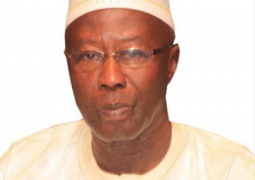Last Friday His Excellency the President formally opened the National Assembly to carry out business as usual.
For the House, business normally means the making of laws and the amendment of laws respectively. It also involves raising questions and commenting on government business, especially on-going and proposed projects and programmes. In this context the President's opening speech serves as a keynote address touching on salient government activities in the various development sectors. One important area of the speech for the majority of Gambians, however, is the part on agriculture. The Gambia is predominantly agricultural, and the greatest part of public investment and GDP hinges on that sector.
This year, reference was made again to ways of developing that sector and of making that sector work for the economy and the socio-economic development of this nation.
It is always a laudable approach because of the indisputable fact that agricultural production and productivity has tremendous potential for enhancing food security and eliminating hunger, malnutrition, and household poverty. With food guaranteed at the table, the population can be free from the depressing spectre of hunger and starving children; and instead provide the stimulus for greater good health, well-being and individual productivity.
A productive population makes a wealthy nation.
In addition to the enhancement of food security, agricultural productivity can bring much needed foreign exchange to boost national reserves and finance imports. Presently, The Gambia relies heavily on imported goods hence the need for foreign exchange earnings, to meet some of the basic necessities. However this is not a mandate for government not to develop and improve manufacturing industries and other measures that would help drastically reduce importation and the import bill. Something should be done about too much importing of various goods, and initiatives be taken to produce some of these goods locally. Steps should be taken to help finance local initiatives on a sustainable basis. Finally, agricultural productivity will boost GDP and enhance prospects for socio-economic development.
In pursuing these ends, the Speech emphasized the provision of agricultural inputs such as fertilizer and seed nuts on a timely basis. There was mention also of agricultural pricing and other incentives to farmers including even the elimination of credit- buying.
All of this is well and good, but it should be noted that the testing time is already here.
The rains are almost here again. Are the inputs and production mechanisms in place, or are they almost not here again? This is the question of many.
"Food is an important part of a balance diet"
Fran Lebowitz



